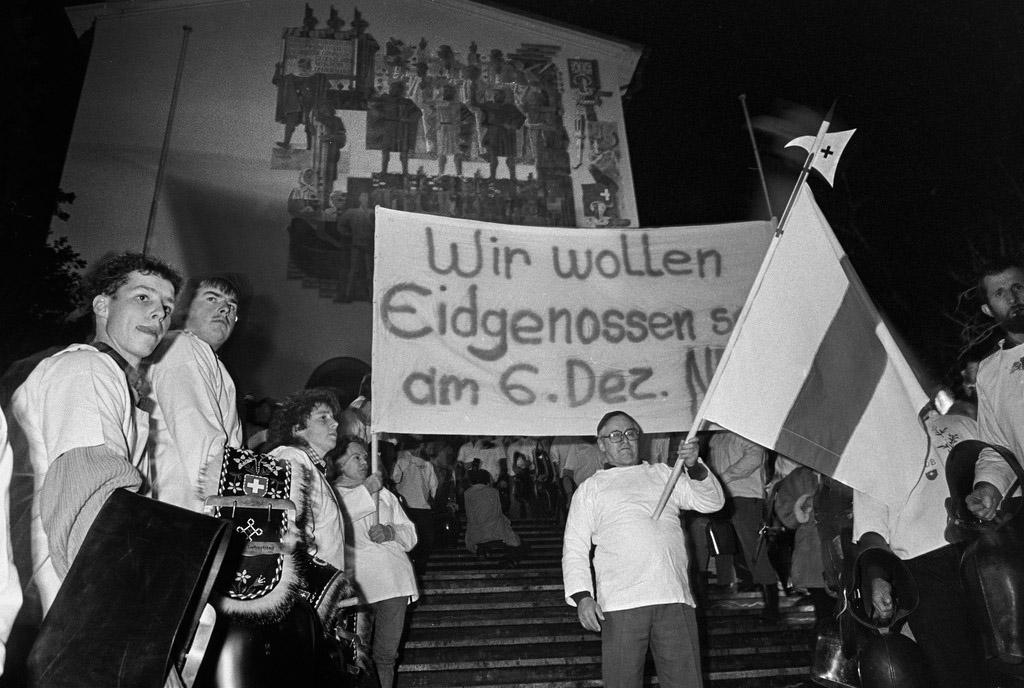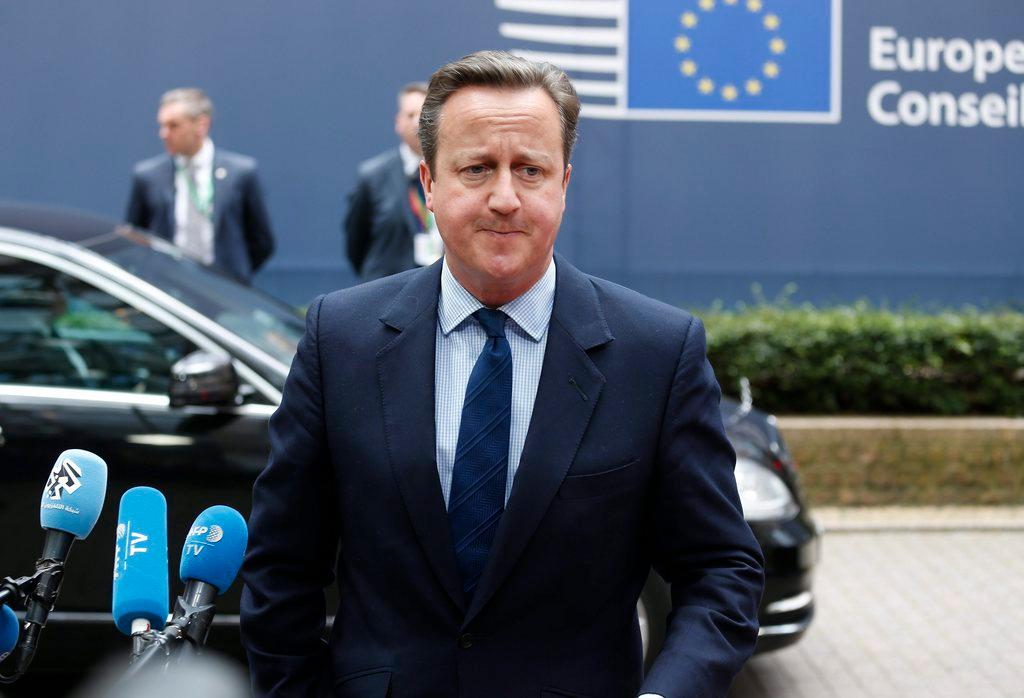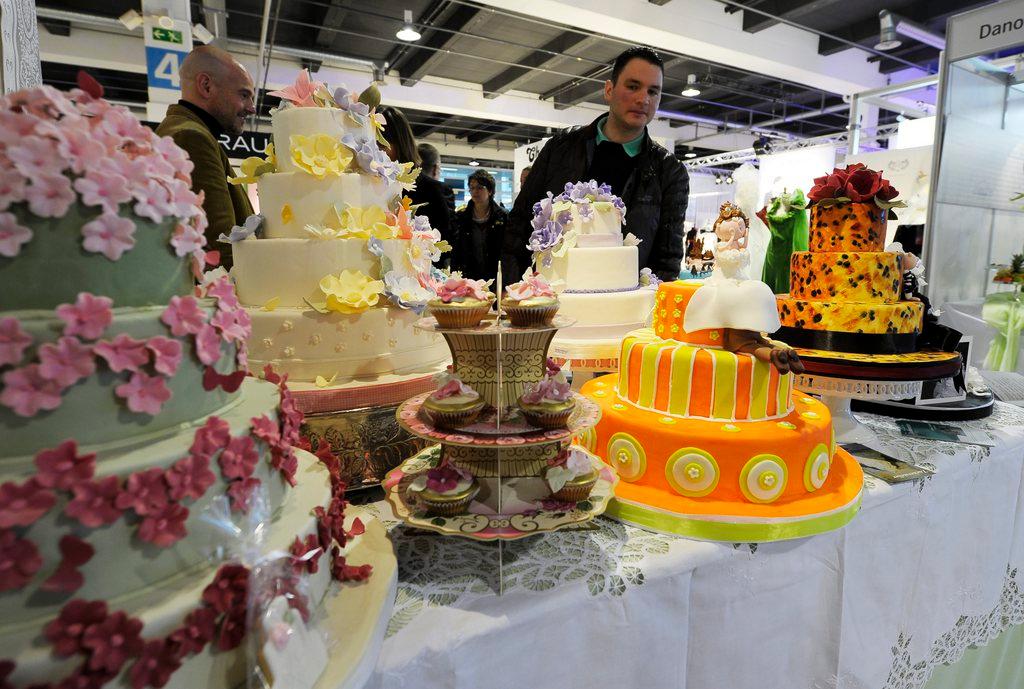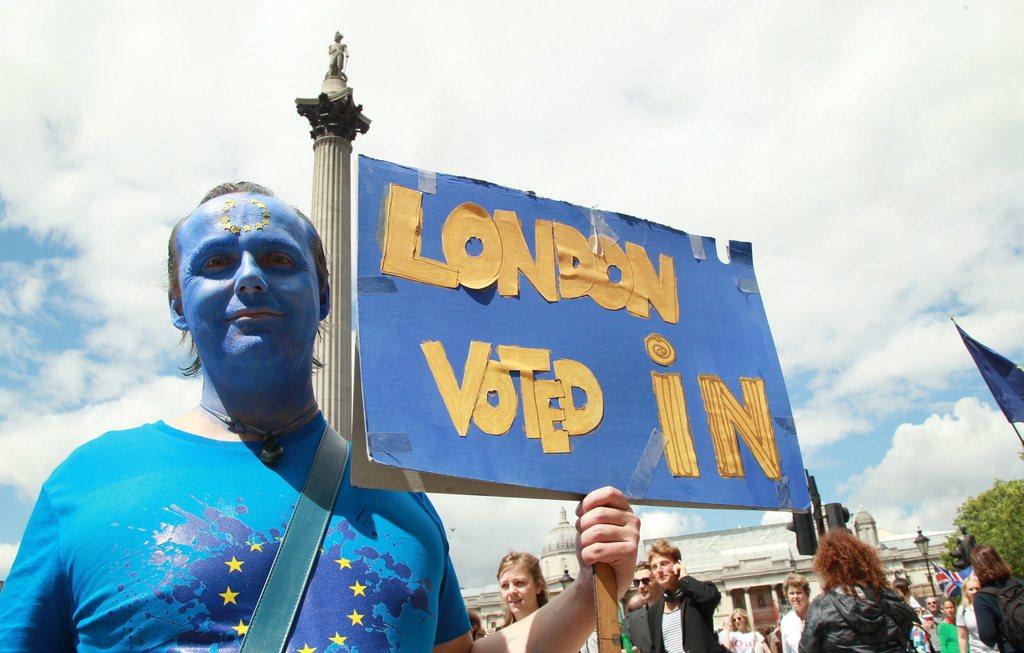A quarter-century of Switzerland’s special status in Europe

Some 25 years before Britons voted to leave the European Union, the Swiss electorate cast its ballot in a popular vote which would have some of the most far-reaching implications in recent history.
On December 6, 1992, Swiss citizens rejected by a small majority a plan for their country to become a member of the European Economic Area (EEA), a move which would have granted near-full access to the European single market.
This text is part of #DearDemocracy, a platform on direct democracy issues, by swissinfo.ch.
The decision echoes the Brexit vote in more than one regard. The campaign was fought with ferocious vigour on both sides, and in the aftermath of the vote, the victorious opponents of the initiative, led by Christoph Blocher from the Swiss People’s Party, cast the decision as an issue affecting the very heart of Switzerland’s sovereignty.
It wasn’t any ordinary vote that took place a quarter of a century ago. Voter turnout hit a record 78.7%, while a mere 23,100 votes ultimately decided the outcome. The decision to reject the closer relationship with Europe was made by a majority of just 50.3%.
Almost never before had a vote opened up bigger rifts in the country than on that election Sunday. Over 70% of Switzerland’s French-speaking regions had voted in favour of becoming a member of the EEA.
What exactly was at stake? What caused such a split between Switzerland’s geographic regions that its reverberations can still be felt to this day?
What it was all about
As the name suggests, the EEA is an economic project. And at the beginning of the 1990s, the Swiss economy was generating almost exclusively bad news; the country was stuck in a recession and gross domestic product (GDP) was growing significantly slower than in other countries of Western Europe.
EEA as a way out of economic hardship
The EU offered Switzerland and other countries the prospect of joining an expanded single market under the umbrella of the EEA. The Federal Council (cabinet) and the majority of the ruling parties in Switzerland regarded this as a saving grace. The only party opposed to the offer was the conservative right Swiss People’s Party.
How would it have worked?
The EEA is a free trade area, to whom both the countries of the EU single market as well as of the European Free Trade Association (EFTA) belong. Switzerland is a founding member of the latter. This means that Switzerland’s membership of EFTA could have provided its point of entry into the EU’s single market.
Would the EEA have lived up to Swiss expectations of it?
This is of course a hypothetical question. Nevertheless, looking at Norway allows for a somewhat realistic comparison. Like Switzerland, Norway is an EFTA member and the result of its joining the EEA was increased growth compared to Switzerland. Like Switzerland, Norway is not a member of the European Union.
Tough talks producing bilateral agreements
Even in 1992, Switzerland and the EU regarded each other as “premium” business partners. That’s why it was clear that after the outcome of the vote, Switzerland still needed to gain access to the EU single market by other means. After years of intense negotiations, this was achieved through the so-called bilateral contracts I and II: sectoral agreements which allowed Switzerland a privileged access to the EU single market from 1999 and 2004, respectively.
What (or who) swayed the vote?
The fight around EEA membership created one big political winner – Christoph Blocher. Then president of the Zurich branch of the Swiss People’s Party and owner of a chemicals company, Blocher almost single-handedly defeated the broad coalition of EEA supporters. He achieved this by using his fortune to fund the “no” campaign, while also managing to portray the EEA and the EU as a frightening monster threatening the wealth and sovereignty of Switzerland. It seems to have been this appeal to people’s fear of “the other” that brought the no-vote the decisive votes.
Adapted from German by Laura Nemeth, swissinfo.ch

In compliance with the JTI standards
More: SWI swissinfo.ch certified by the Journalism Trust Initiative












You can find an overview of ongoing debates with our journalists here . Please join us!
If you want to start a conversation about a topic raised in this article or want to report factual errors, email us at english@swissinfo.ch.